3 Nutritionists Told Us to Avoid This Health Trend
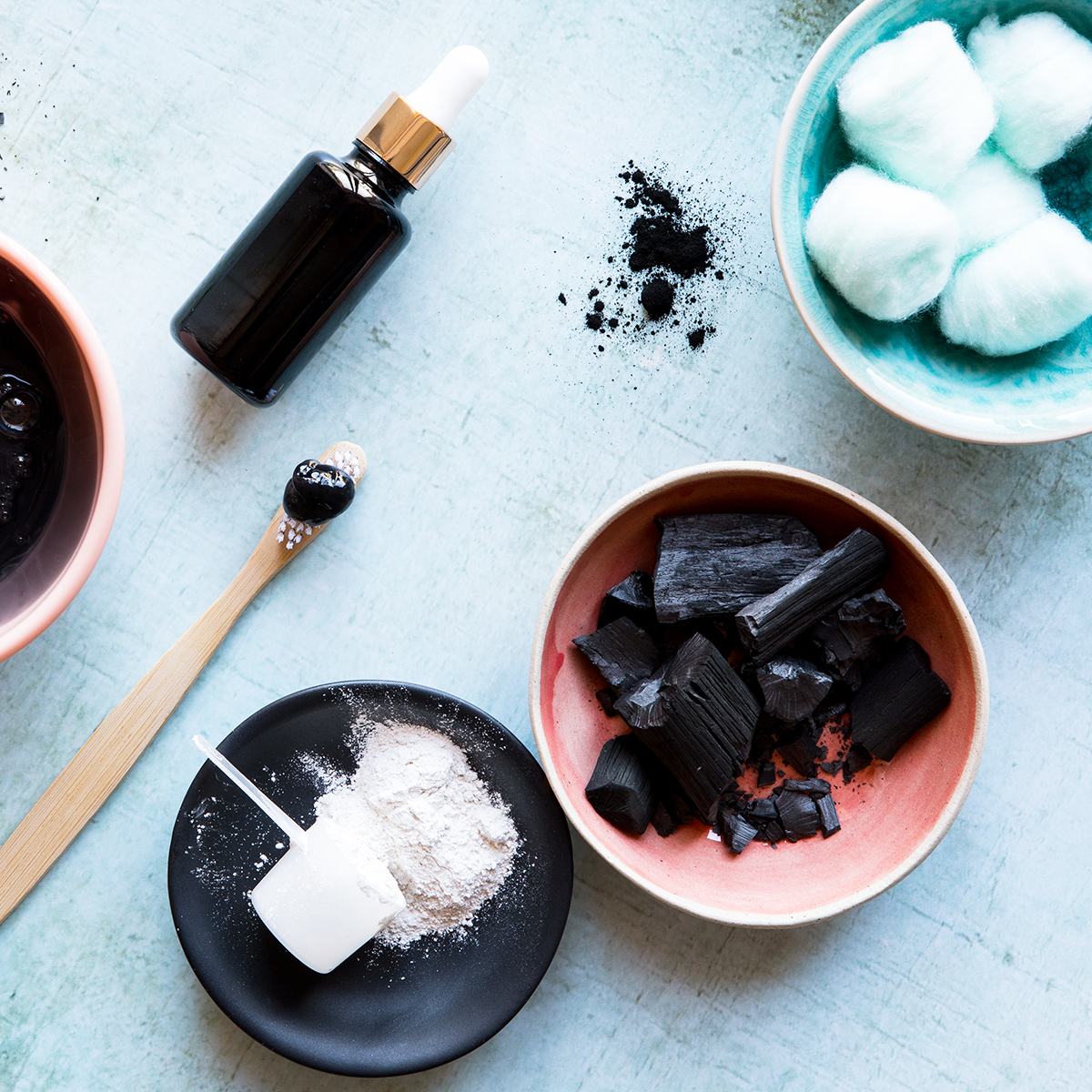
If you enjoy scoping out the latest wellness trends, you've likely come across activated charcoal. I've seen it in smoothies, toothpaste, face masks—even ice cream. Besides the fact that activated charcoal foods make for some pretty epic Instagram photos, its ability to detox the body of toxins has been touted by many brands and influencers alike. From treating digestive issues to preventing hangovers, this ingredient has earned a reputation a natural cure-all.
But like all things I find on the internet, I wasn't totally convinced. Could one simple addition to my foods and smoothies really do all that it says it does? And would this really make much of a difference in my health? I chatted with several nutritionists to learn the truth and, drumroll please, the short answer is not exactly. Before you pick up another charcoal drink, keep reading to see what they had to say about this health trend.
What is activated charcoal?
Truth be told, I have no clue what the term activated charcoal really means—besides the fact that it makes whatever food it's embedded in gray and it doesn't taste as bad as you'd think. If you're on the same page, read this definition provided by dietitian Farah Fahad, M.S., M.A., R.D.: "Activated charcoal is a fine, odorless, black powder often used in emergency rooms to treat overdoses. Activated charcoal is not the same substance as that found in charcoal bricks or burnt pieces of food. The manufacture of activated charcoal makes it extremely adsorbent, allowing it to bind to molecules, ions, or atoms. In this way, it removes these from dissolved substances. The body is unable to absorb charcoal, and so the toxins that bind to the charcoal leave the body in the feces."
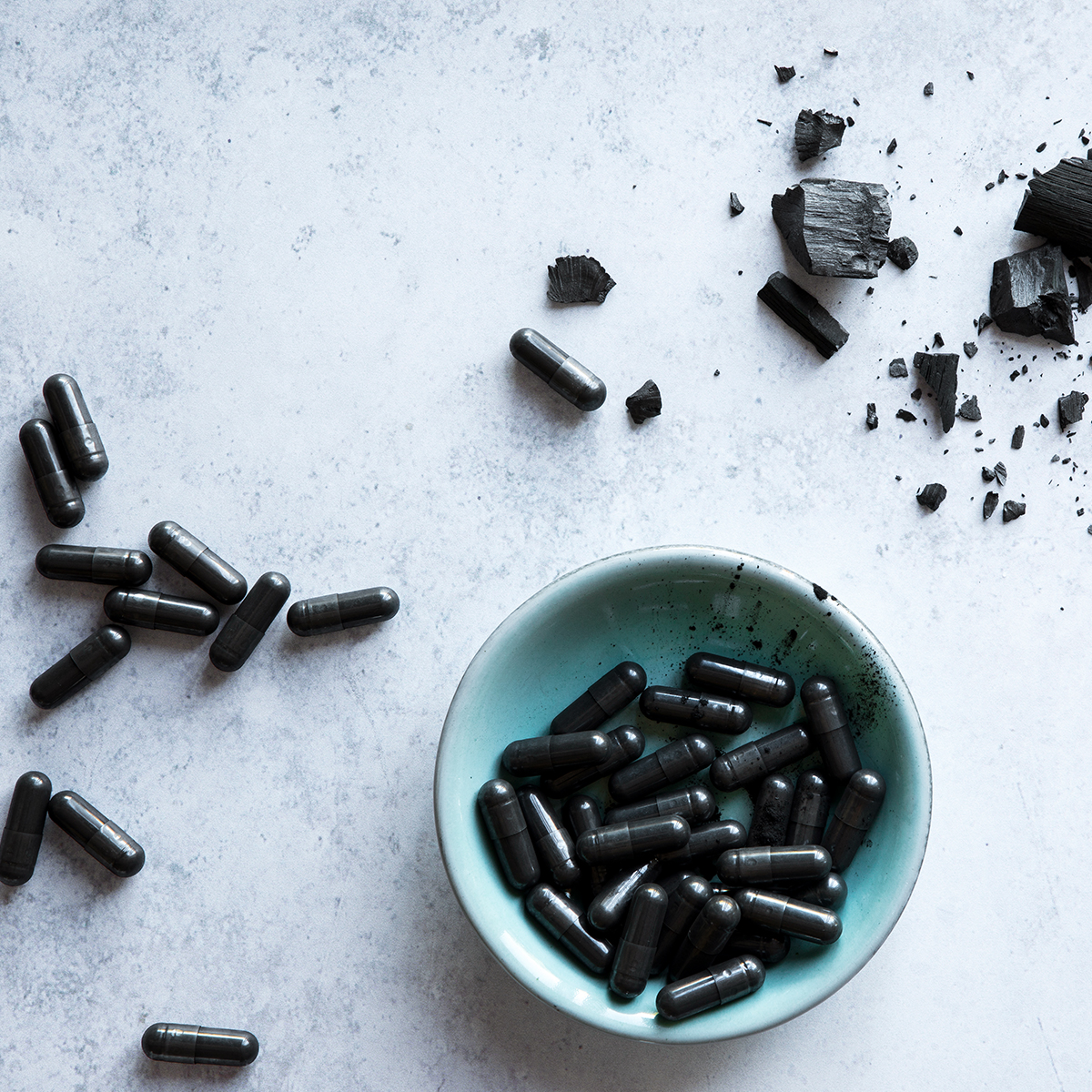
Can it really detox your body?
Even though it's been trending for the past few years, consuming activated charcoal isn't exactly a new practice. It's a practice that's thought to have been discovered by the ancient Egyptians, and as Farah mentioned earlier, hospitals often use it as a treatment for overdoses. But whether it works as an everyday supplement to naturally detox the body has been widely debated. Behavioral Nutritionist Kelley Hoag shares this stat: "As of now, there are TWO published articles on the effect activated charcoal has on bloating. One says it helps; one says it doesn't."
Despite which side of the research you believe to be true, its effects should not be taken lightly. Farah explains activated charcoal should be used when needed but is not a substance that should be taken daily: "If taken daily, it can bind to other nutrients and minerals we need. If you use it short term, it cannot cause harm, but it becomes harmful if used continuously. It should not be a health trend—it's a medicine that should be used for a particular condition (gas and bloating, for example)."
Nutritionist Samantha Franceschini, M.S., agrees: "Like every health trend out there, you should always consult a nutritionist or physician before trying something. Charcoal has its many benefits but can also be dangerous when not used correctly. Charcoal binds to toxins, but when you're supplementing with any form of binder, you can bind nutrients at the same time, minimizing nutrient absorption that's important for many biochemical pathways in the body."
So while you may choose to take activated charcoal when feeling hungover or dealing with a stomach ache (after asking your doctor), we wouldn't suggest stocking up quite yet. Once again, we emphasize checking with your doctor first, as Samantha tells us this natural remedy can actually be pretty dangerous. "Activated charcoal also interferes with many medications. When selecting activated charcoal products you should also know your source. It is very important to understand that not all products are created equal".
But, there is a bright side. "Activated charcoal when consulting with a health practitioner can be very beneficial to aid in digestion and remove toxins from the body. I always recommend taking it at least an hour away from a meal, supplements, or medications, to ensure there is no alternative reaction with nutrient absorption".
What are some healthier alternatives?
If you've decided activated charcoal just isn't for you, don't fret: There are many alternatives that'll detox your body just as well. "If someone is looking to detox on the daily, what you eat and drink will support the bodies natural detoxification properties," Farah suggests. Drink enough water, and eat plenty of green vegetables. Matcha green tea is excellent for detoxification. Licorice root, a daily probiotic, turmeric, ginger, and milk thistle are also natural detoxifiers."
Samantha also suggests chlorella, which she describes as "an ancient micro-algae bursting with precious nutrients that contains more chlorophyll than any other plant on earth!" Just be aware that it's very important to know your source when using chlorella, as it can contain molds and heavy metals when not sourced optimally. Keep scrolling for nutritionist-approved products for detoxing…
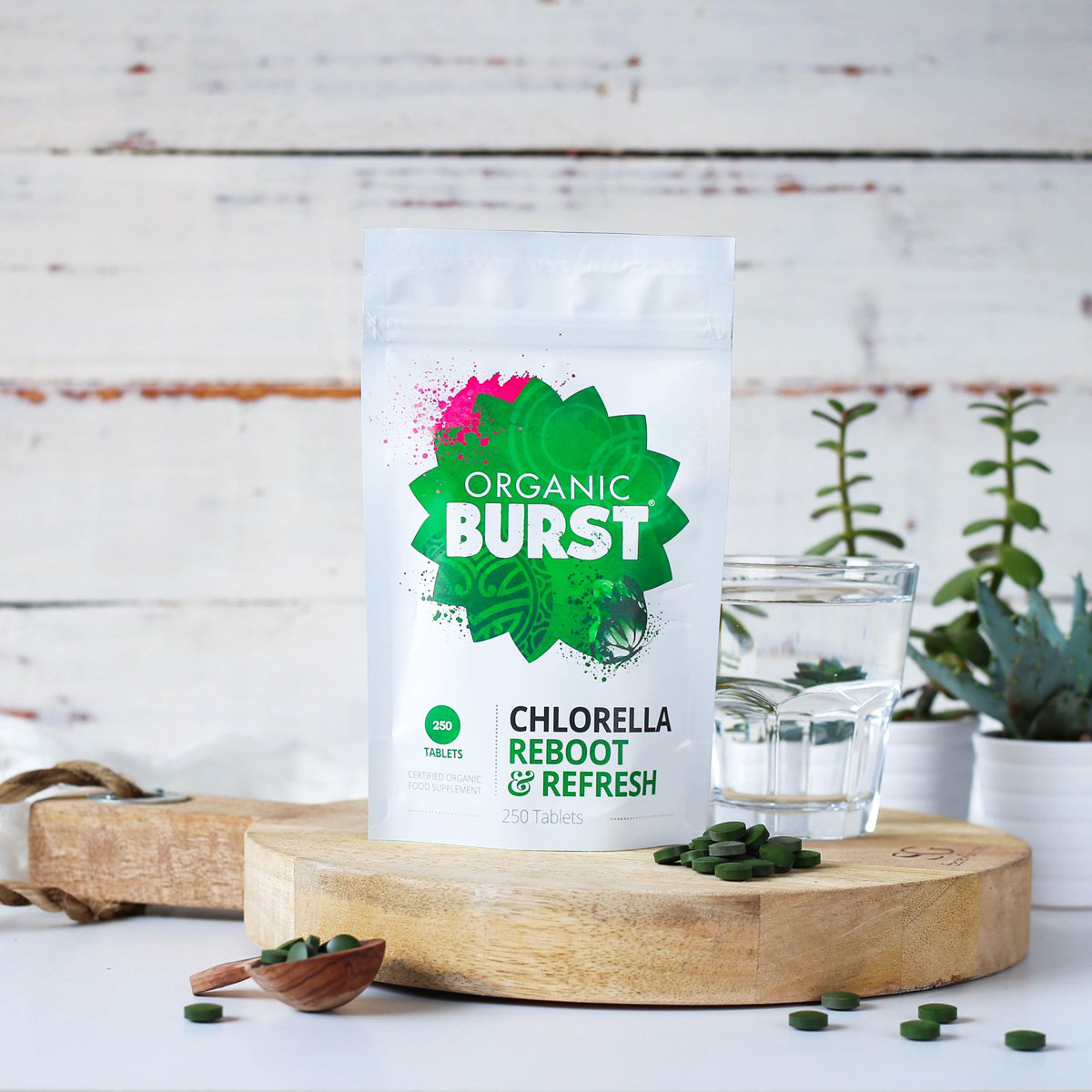
Samantha shares that this brand of chlorella, which comes in both tablet and powder form, is one of her favorites. It's created using only organic plant-based fertilizers, so you can trust everything inside is clean and without additives or chemicals.
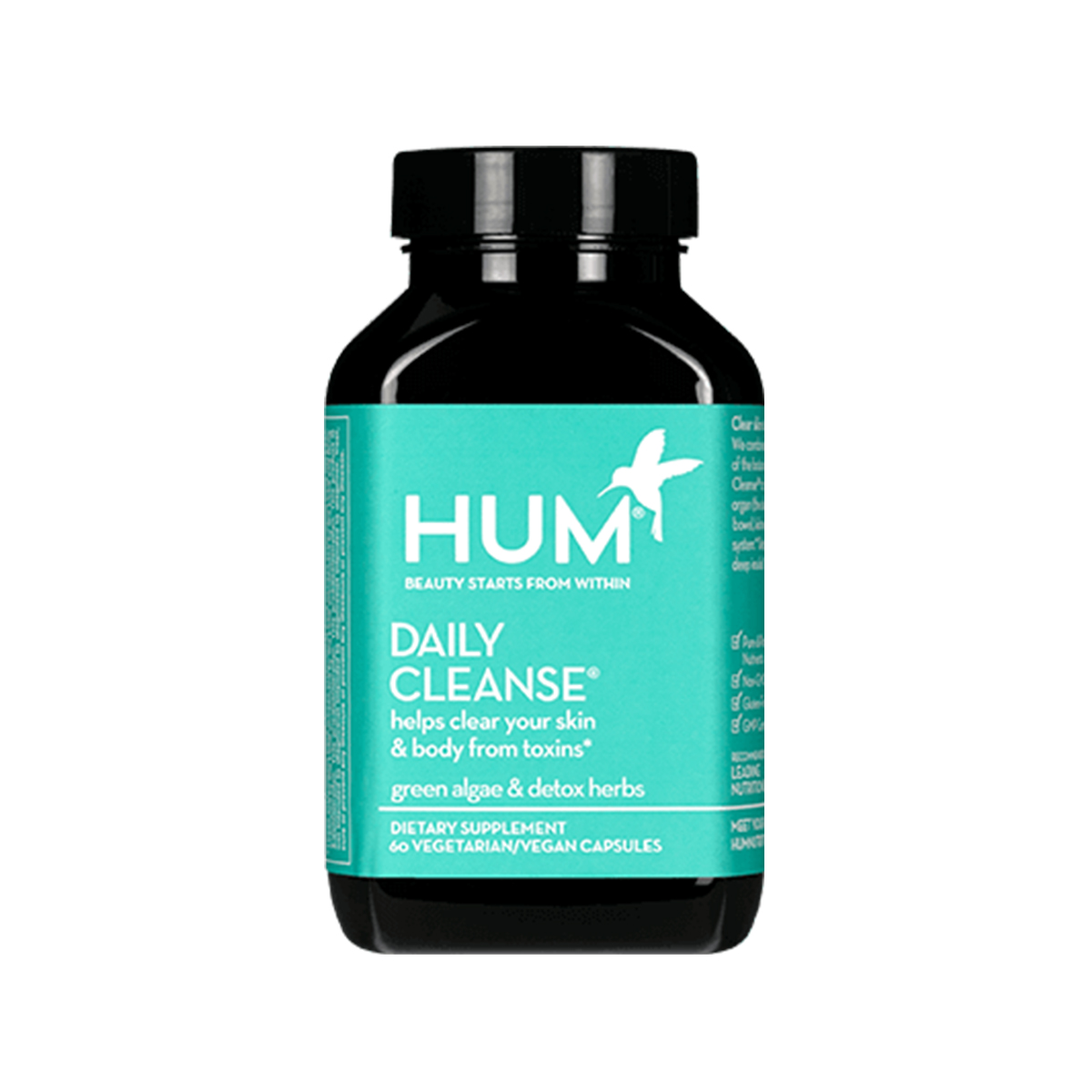
We've been obsessed with Hum for a while now, but its Daily Cleanse supplements are always stocked on our shelves. This formula is made of detoxifying ingredients like spirulina and organic chlorella that promise clearer, detoxed skin within weeks.
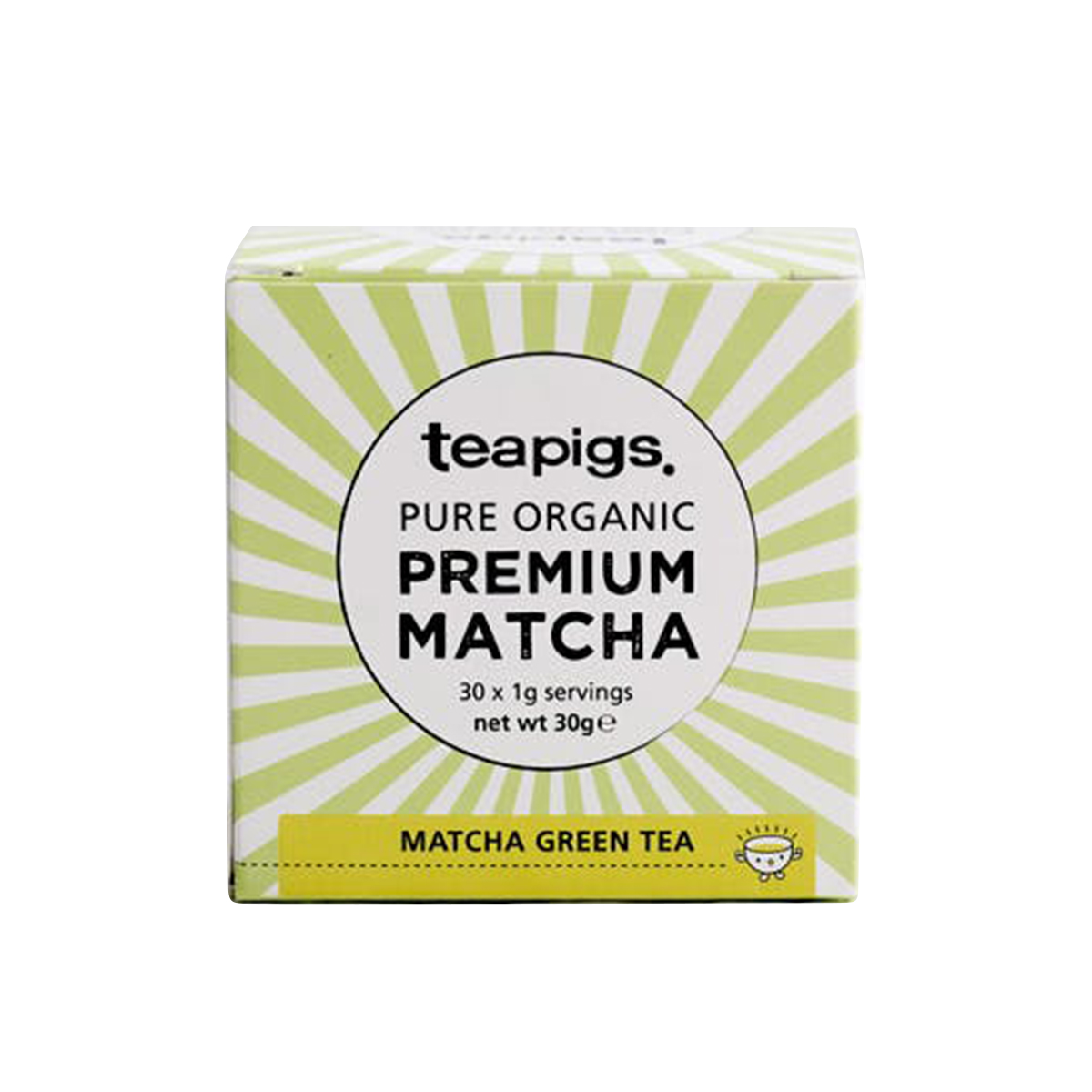
Matcha lovers—add this to your cart ASAP. This super-premium organic matcha powder has been reviewed by a member of its community as "the freshest, richest flavor of all the matchas I've tried."
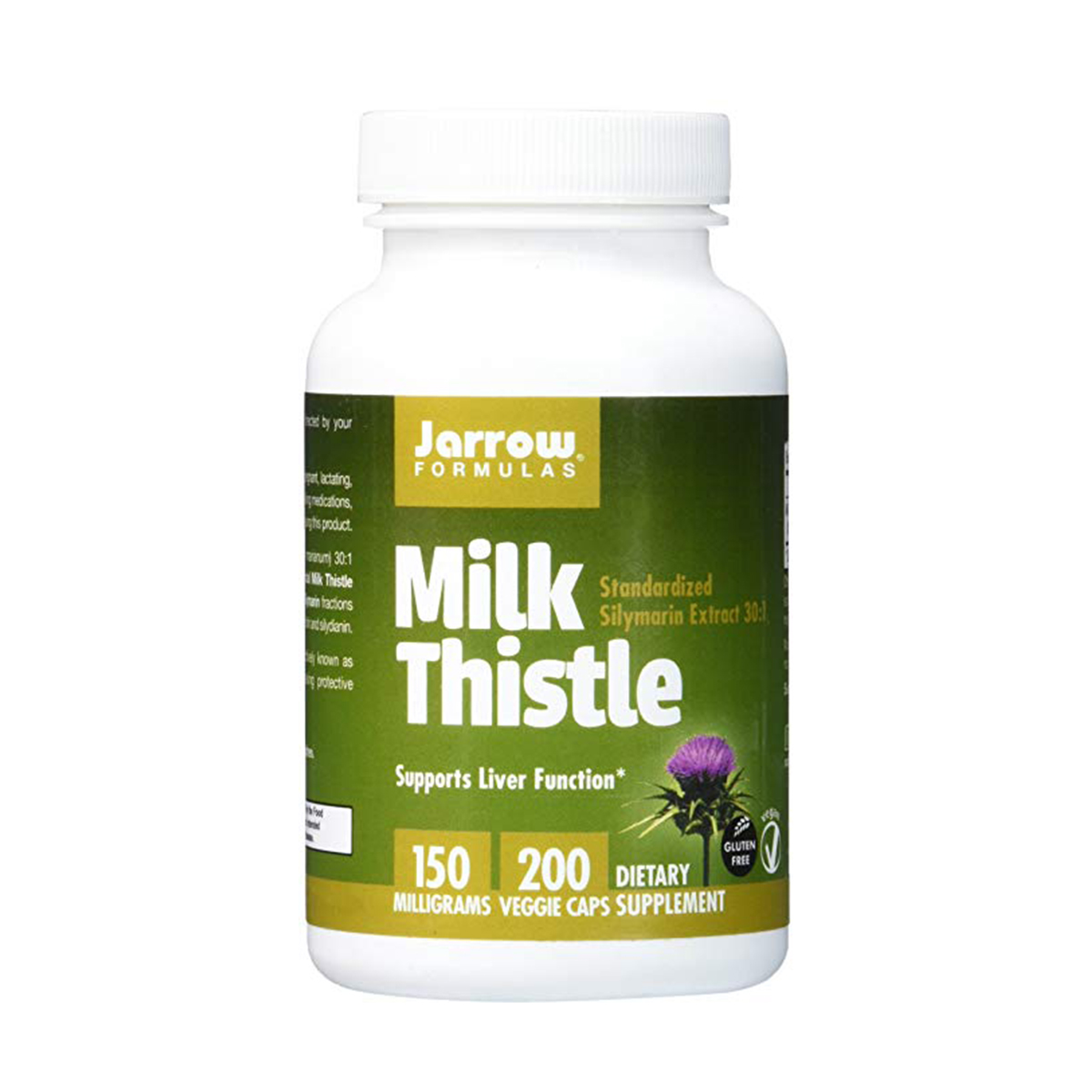
This Milk Thistle has over 1000 positive reviews on Amazon and makes only an $11 dent in your wallet.
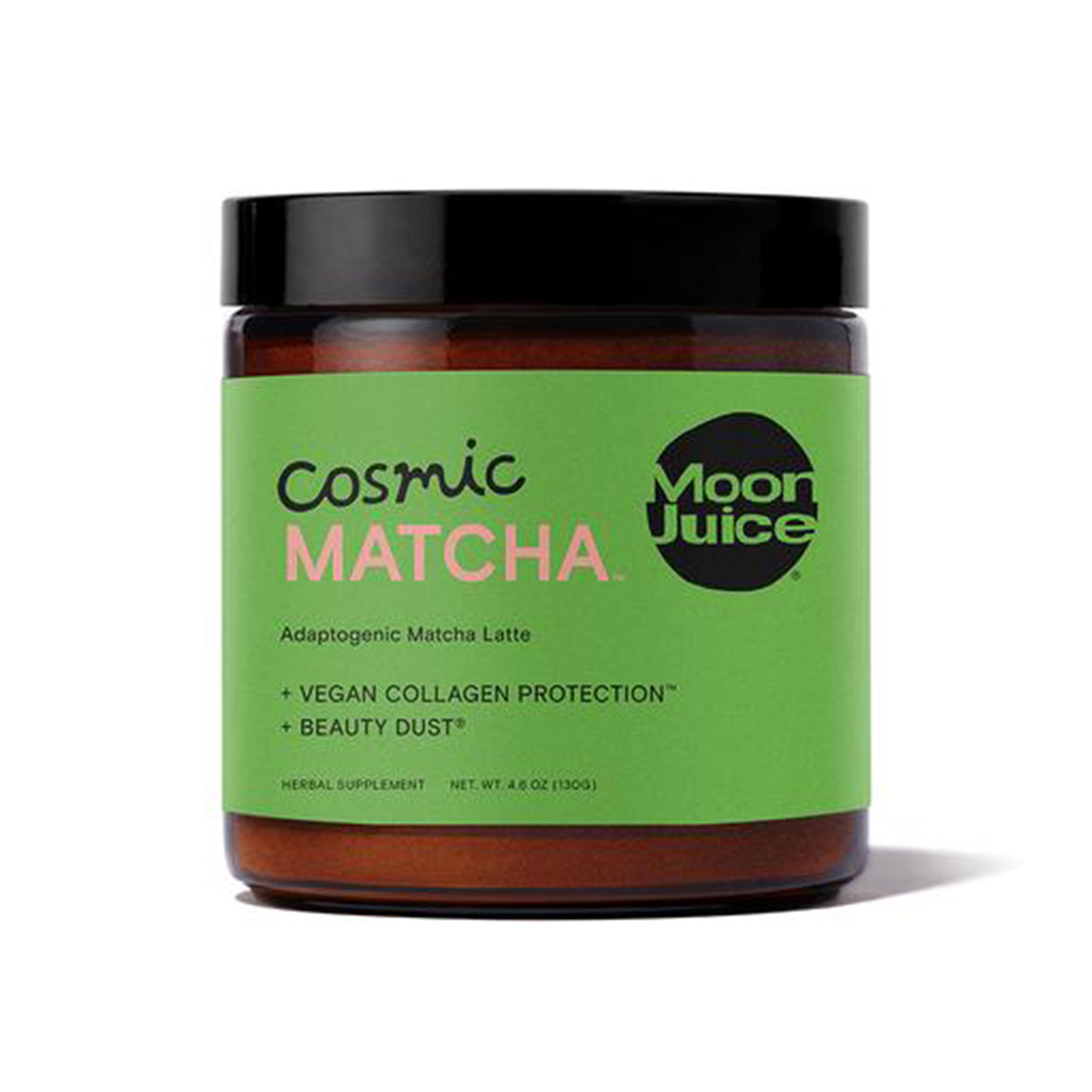
This Moon Juice blend isn't just any matcha. It's an adaptogenic matcha latte that comes with ingredients like Amla, pearl and hyaluronic acid that boosts skin, bone, and hair health.
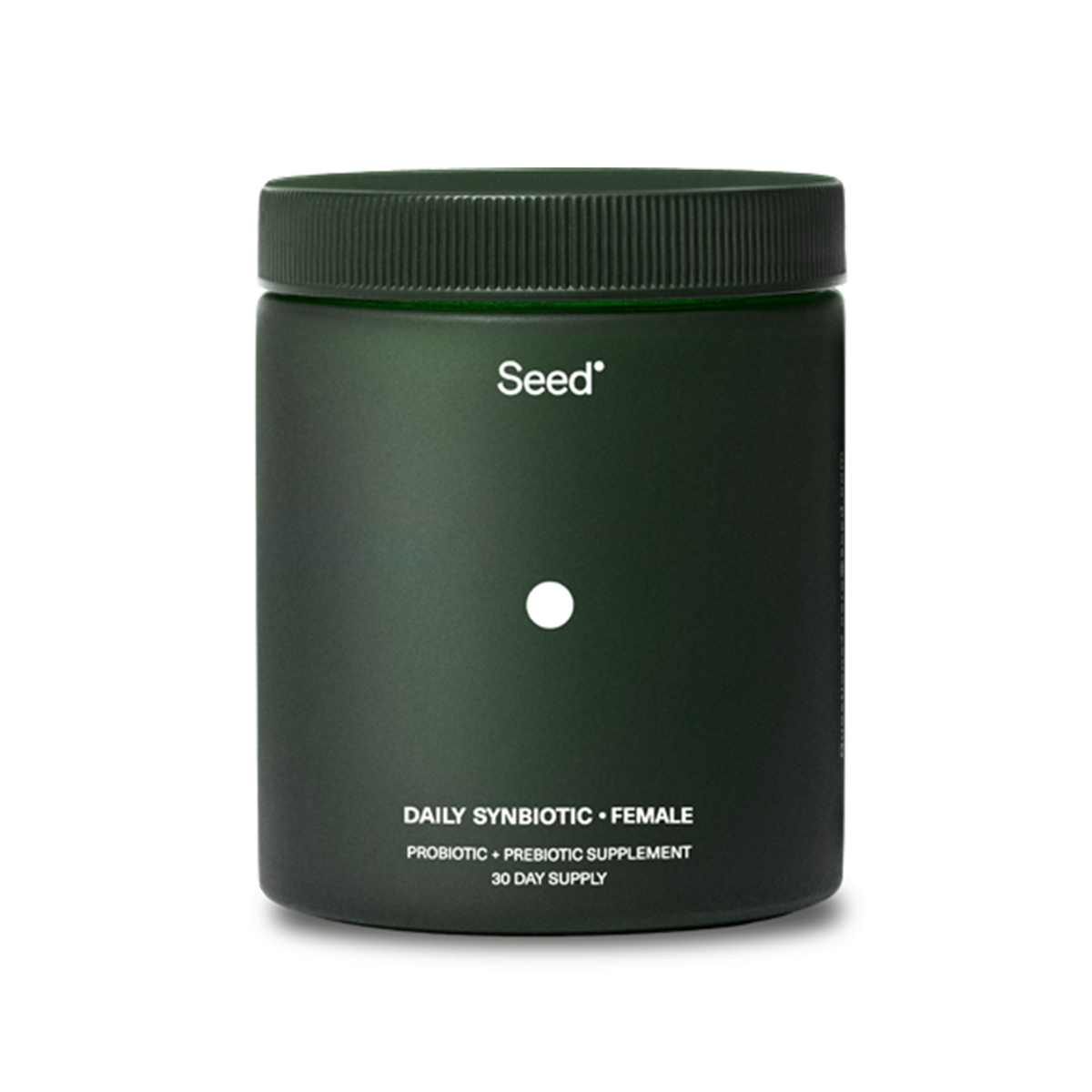
ICYMI, probiotics are the supplement to have right now. But gut experts have told us to look for a probiotic that also includes a prebiotic, which this reputable brand has.
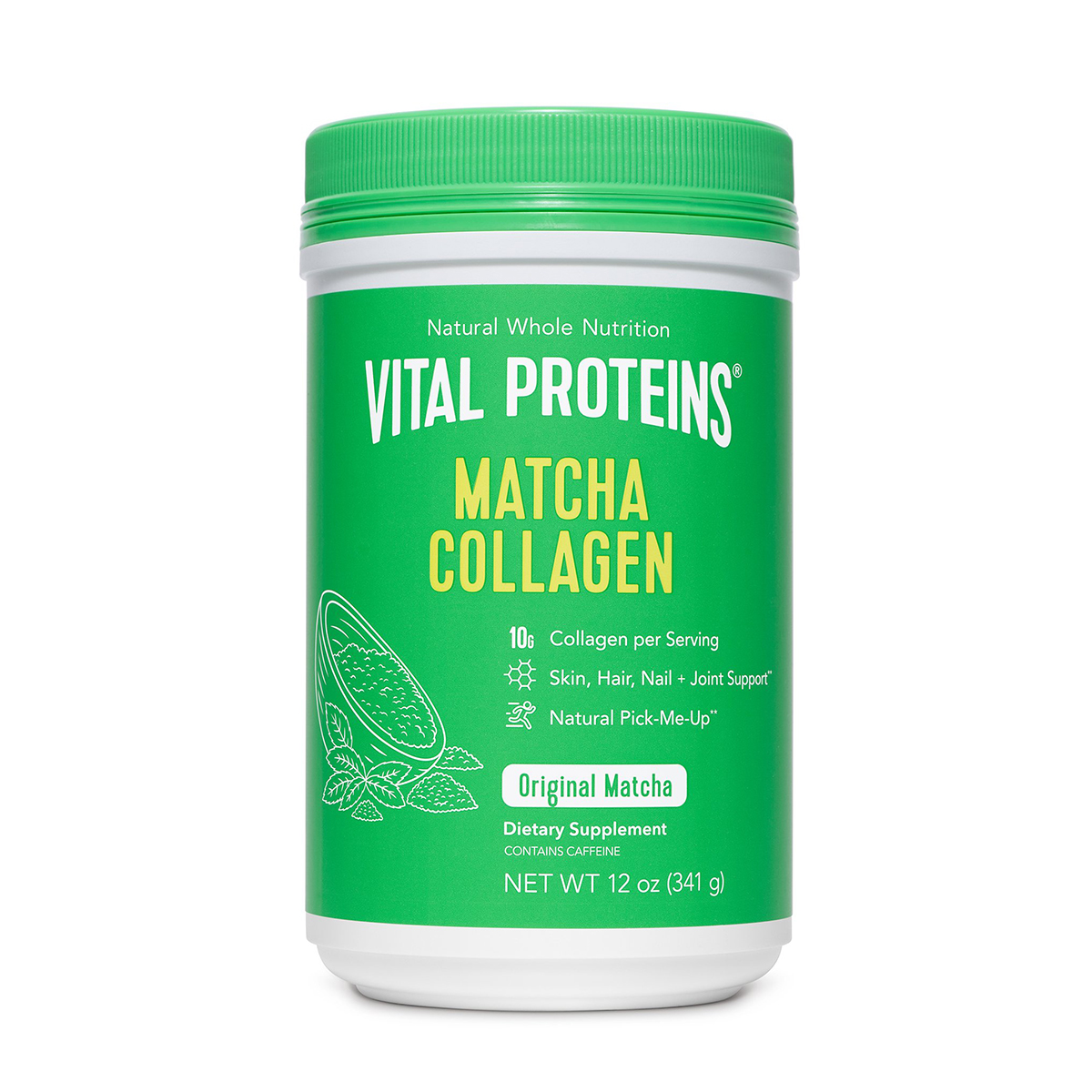
Vital Proteins is one of the top collagen brands out there, and this matcha blend is a great way to boost your skin health while getting the detoxifying benefits of matcha in the same cup.
Next: 8 Ways to Detox Your Body Within Hours—Yes, It's Possible
Disclaimer
This article is provided for informational purposes only and is not intended to be used in the place of advice of your physician or other medical professionals. You should always consult with your doctor or healthcare provider first with any health-related questions.
-
 It's Time to Get Our Nutrition in Check for Summer—This App Is Making It Easy
It's Time to Get Our Nutrition in Check for Summer—This App Is Making It EasyThe recipe ideas are endless.
By Who What Wear
-
 Bella Hadid and Gwyneth Paltrow Apparently Love Sakara Life, so We Tried It for 30 Days
Bella Hadid and Gwyneth Paltrow Apparently Love Sakara Life, so We Tried It for 30 DaysHere are our honest thoughts.
By Erin Jahns
-
 The 6 Warning Signs You're Not Getting Enough Protein
The 6 Warning Signs You're Not Getting Enough ProteinAnd what to eat to up your intake.
By Sarah Yang
-
 Everything This Professional Ballet Dancer Eats to Fuel Her for Performances
Everything This Professional Ballet Dancer Eats to Fuel Her for PerformancesHer grocery staples include high-quality French butter.
By Candice Aman
-
 These 8 Foods Are the Worst for Rosacea—Here's What to Eat Instead
These 8 Foods Are the Worst for Rosacea—Here's What to Eat InsteadControl those flare-ups.
By Sarah Yang
-
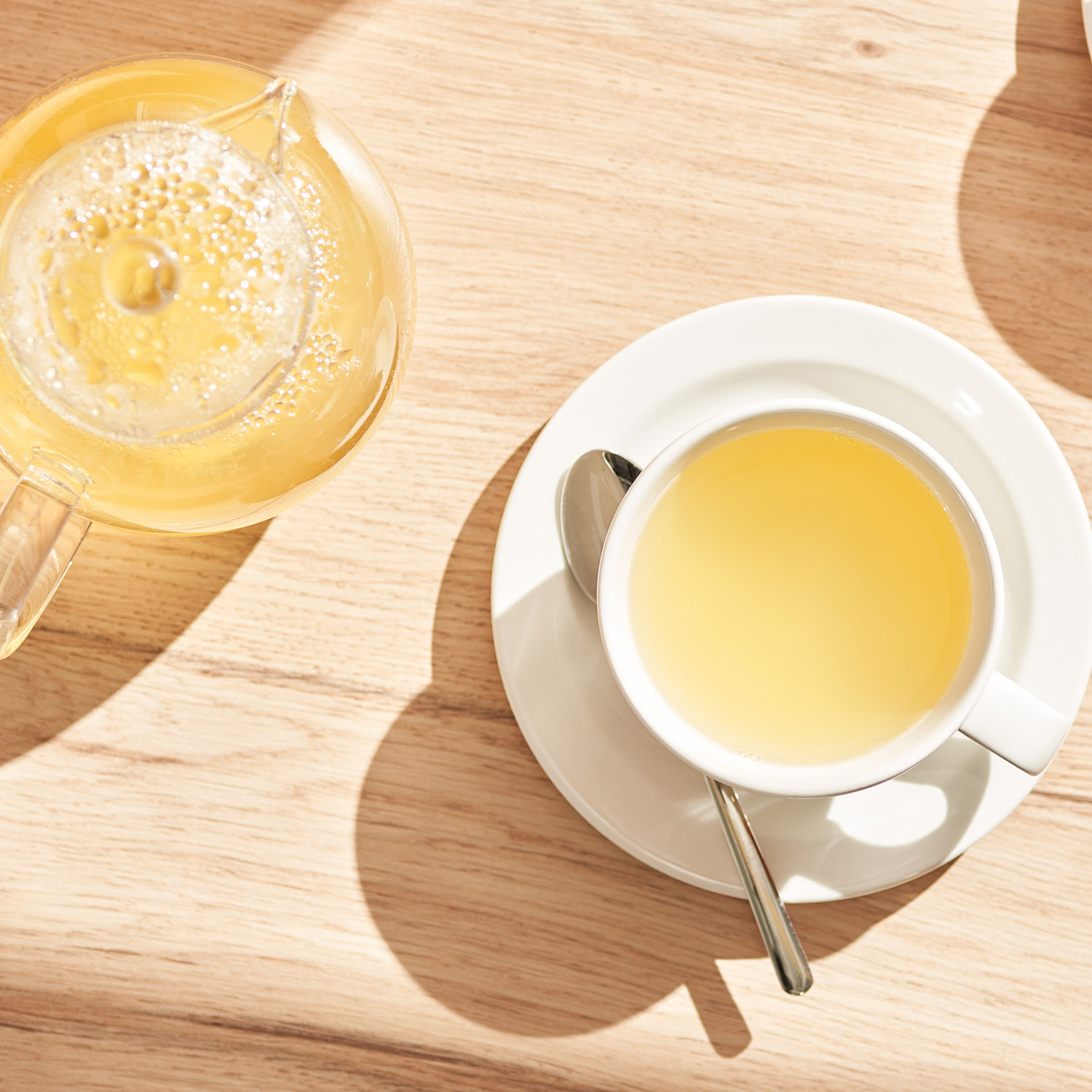 15 Things That Cause Bloating and How to Get Rid of It ASAP
15 Things That Cause Bloating and How to Get Rid of It ASAPTry these.
By Sarah Yang
-
 Is the Alkaline Diet Overhyped? What Experts Want You to Know
Is the Alkaline Diet Overhyped? What Experts Want You to KnowHere's how it works.
By Sarah Yang
-
 I'm an Imperfect Dietitian and My Key to Eating Healthy Meals Is Convenience
I'm an Imperfect Dietitian and My Key to Eating Healthy Meals Is ConvenienceTake a peek at my weekly grocery staples.
By Candice Aman

